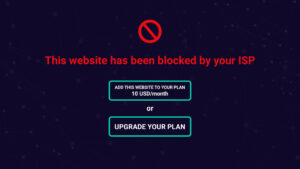It’s time to finally get your SEO project done that you said you were going to take care of months ago. Your executive team knows it’s important, but that’s about it. You have to outsource the project because you know it’s too complex for you to completely take care of along with all your other projects and initiatives. The goal was to hand the keys on to someone else who knows SEO and paid search to get the job done right, but now you need to figure out how to be the liaison between your own team(s) and the search partner you have chosen to work with.
Here is a list of 5 items that will help you manage expectations in that relationship.
-
You Will Not See Results Overnight
Search professionals evaluate SEO performance using pre-defined Key Performance Indicators (KPIs). These KPIs are a combination of metrics that are specifically measured and defined to chart on-site performance or improvement. Most SEO projects do not see any improvement in on-page metrics for up to six or nine months after the project is completed. Depending on when and how you implement your fresh SEO can impact performance as well. For example, when Mobilgeddon hit in April, our clients that had just undergone a mobile-friendly updates didn’t see an impact immediately. Instead, they had to chart specific KPIs over the following weeks to see how mobile users’ interactions with the site had changed. Since those mobile updates time on site, pages visited, and visit durations began to incline incrementally. These KPIs indicated that the user experience on mobile had improved.
-
Micro Managing Someone Else’s Project Will Get You Nowhere
It’s imperative to know what your SEO partners are doing at any point in time, but trying to manage the project yourself is only going to make things more difficult. Your search professional is going to be spending hours at a time working on your project(s) and will not have meaningful updates for you every day. One meeting a week can even be too much. Two meetings a month and a call here and there is more than substantial for even larger projects. However, when too many people are in the mix messaging can get confused. Keep a schedule with predetermined deadlines with flexibility in mind. Some items are going to take extra time due to checks and balances. Work will need to be approved before one party can move forward. It can be difficult to get everything when your bosses say they need it, but remember, they don’t always know the methods behind these processes. This makes it all the better to outline duties [internal and external] ahead of time and scope the project with your search partner before you get started.
-
Content is King
There’s a lot of hype in the digital space about “minimalist” and “one pager” websites. It seems like a great idea because everybody is doing it. Big brands in your industry are doing it too, so shouldn’t you be? Well, no. There are very few cases in which a one page website can be recommended. It is a proven fact that websites with more pages and more text get crawled more, and websites that get crawled more get more visitors, and websites with more visitors get more conversions. It’s that simple. If your business offers a variety of products and services you should have a page dedicated to each individual product or service. The better that copy speaks to your users the more likely they are to fill out a lead form or pick up a phone. If you don’t have good, quality content with specific, clear calls-to-action then you’re going to be missing out. Period.
-
Don’t Panic If Your Traffic Dives
I see this happen every day it feels like. The second a website’s traffic tanks everybody wants to freak out. That helps nobody. There are a vast amount of variables to consider and a myriad of consequences that could result from a paid search perspective, a search volume perspective, and a web hosting perspective. We’ve seen sites go down without warning, traffic stop overnight, and anything in-between. The fact of the matter is that we aren’t always able to foresee when there is going to be a shift or dive in traffic to your site. However, when it does happen your digital partner is going to have protocols to figure it out in due time – that’s our job. Some people also seem to think that the traffic dips will last forever. Guess what? They won’t. Picking up a phone at 2am on a Saturday isn’t going to help anyone. The best thing you can do is document your findings as best you can, offer any insight you might be able to think of, and then let us do our job.
-
Help Us Help You With Understanding What We Do
Another thing I cannot stress enough is how frustrating it can be when a client doesn’t know what questions to ask. Sometimes we will work with a team member on the client side that thinks SEO and PPC are the same thing, or reversed, or identical, or who knows what. We do not expect you to know everything, or even half of it. However, it is your job to know which questions to ask us. Simply put – we do not know what you do not know. I love teaching my clients new things about search. There are insights you can gain from your Analytics and reporting dashboards that can help marketing and sales teams immensely if they understand that data in context. There’s also a vast amount of research out there to keep yourself busy if you’re trying to break into the search industry. One thing I have learned over the past few years is that there is major news that impacts our industry every day. Whether it’s a monster update from Google or a new feature added to any Google product, there’s always a new tip, trick, or piece of information that can keep you ahead of the game.
[author] [author_image timthumb=’on’]https://media.licdn.com/media/p/8/005/063/2b5/3dcb6cb.jpg[/author_image] [author_info]Colin Mumma is a lead Searchologist at Searchology. He lives and breathes all things SEO and loves quality content. Colin has managed client campaigns at Searchology since 2014.[/author_info] [/author]


